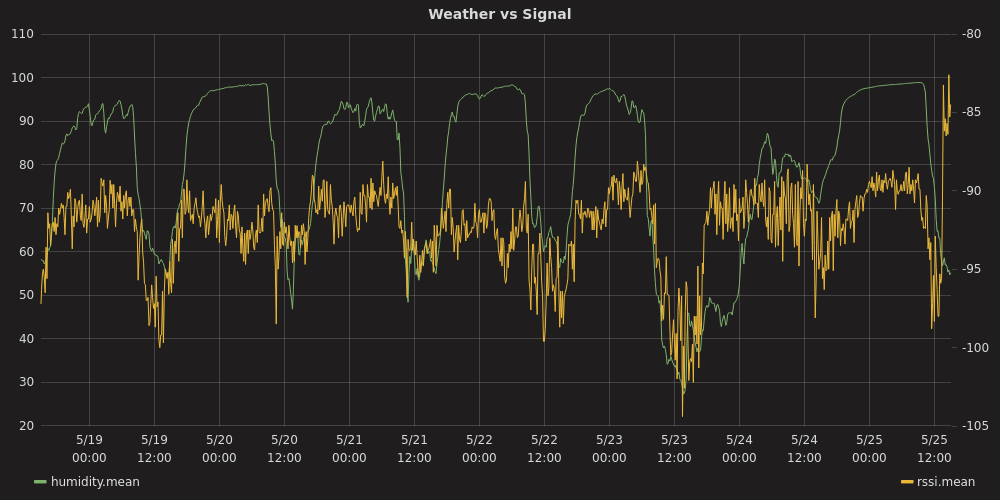I have been logging weather data and signal strength data together for a while now. From all these measurements the nicest correlation one can see is RSSI vs Humidity. The more humid the air, the higher the RSSI.

Hi JP,
Nice data, and interesting to figure out what is causing the rssi cycles.
Both variables have a diurnal variation, but I don’t think you can infer causality from just that. Also, you’re plotting relative humidity, so the variation you see in that is mostly temperature related. The absolute amount of humidity in the air, potentially affecting the radio propagation, probably varies a lot less.
Curious to know what is your setup. How is the environement? how is the node situated? Indoor, outdoor? what antenna is used?
interesting
Particularly, the accuracy of RSSI-based
ranging and localization decreases significantly if the effects of
temperature and humidity are ignored.
What is interesting is that the ‘paper’ ignores distances.
Its been my understanding that the obsorbation rates at various frequencies have been known for many decades and for fog (100% humidity?) its around 0.01dB per km at 2.4Ghz.
So the ‘paper’ reports they are seeing variations of +- 1dB which previous research history suggests is the variation you might see for links in the 100km to 200km region. Wifi at the low power level used in the paper is only likely to go tens of metres.
Yet I cannot see a mention of this apparent contradiction.
So is the variation being seen actually down to humidity or something that the testers in the paper have not understood ?
yes… its a PAPER… but did you actually read it ? 
Yes, so what did I miss ?
I had some problems with fog on a golf course in Holland and the receiving the 5 minute data Instead of 5 minute data we had much a longer time between the data. So I am looking to all kind of information.
we received the 5 minute data sometimes in 20-40 minutes.